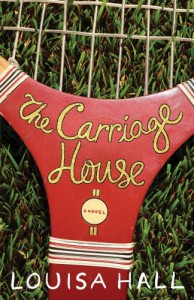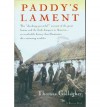Currently reading
Paddy's Lament, Ireland 1846-1847: Prelude to Hatred
Pivot: The Only Move That Matters Is Your Next One
When in French: Love in a Second Language
Beyond the Job Description: How Managers and Employees Can Navigate the True Demands of the Job
Vision and Art: The Biology of Seeing
Achieving Your Potential As A Photographer: A Creative Companion and Workbook
Reclaiming Conversation: The Power of Talk in a Digital Age
Picture Perfect Practice: A Self-Training Guide to Mastering the Challenges of Taking World-Class Photographs (Voices That Matter)
Man's Search for Meaning
Terms of Service: Social Media and the Price of Constant Connection
The Carriage House
 I enjoyed this. It took me a bit to get into it -- keeping the characters straight, etc. I enjoyed the references to Persuasion. The sadness surrounding Diana and the others. "Her teachers felt she had talent but hadn't ye found her voice. Her adviser asked her to decide what kind of architect she'd like to become. He offered her a list of suggestions: schools of thought she might join, theories she could espouse. He seemed to think it ought to be clear. What kinds of structures did she want to build? Diana couldn't tell him. Once, in a past life, she would have been sure. When she was playing tennis, she knew who she was. She had a ranking to measure her value. People recognized her from tennis magazines and televised tournaments. She met with her coaches every day to ensure the progression of her talent. When tennis ended, she felt as if a door had closed behind her, stranding her somewhere she did not recognize. There was no numerical system to quantify her life. Her coaches no longer checked in on her. She took for granted how surrounded she was when she was playing her sport. She was so alone out there on court, talking to herself about footwork and strategy, but she was at a center of a universe. After she quit, she was like a planet that had fallen out of its orbit. At night the other students met for drinks or worked together in the library, but Diana ran. Through neighborhood streets at first, past chain restaurants and apartment complexes, then into Shoal Creek Park, along the dry creek bed littered with pale rocks, under the arms of live oak trees draped with Spanish moss. When she got to town lake, she turned around, heading again into the world of the living, past bike shops and pet salons, home to her apartment. She never ran in loops: just straight out and straight back. The accumulations of her day could be whittled down if she ran long enough. She could almost remember the old quickness and ease. The sure trajectories. Her presence within her body, directing its forward motion" p. 108-109
I enjoyed this. It took me a bit to get into it -- keeping the characters straight, etc. I enjoyed the references to Persuasion. The sadness surrounding Diana and the others. "Her teachers felt she had talent but hadn't ye found her voice. Her adviser asked her to decide what kind of architect she'd like to become. He offered her a list of suggestions: schools of thought she might join, theories she could espouse. He seemed to think it ought to be clear. What kinds of structures did she want to build? Diana couldn't tell him. Once, in a past life, she would have been sure. When she was playing tennis, she knew who she was. She had a ranking to measure her value. People recognized her from tennis magazines and televised tournaments. She met with her coaches every day to ensure the progression of her talent. When tennis ended, she felt as if a door had closed behind her, stranding her somewhere she did not recognize. There was no numerical system to quantify her life. Her coaches no longer checked in on her. She took for granted how surrounded she was when she was playing her sport. She was so alone out there on court, talking to herself about footwork and strategy, but she was at a center of a universe. After she quit, she was like a planet that had fallen out of its orbit. At night the other students met for drinks or worked together in the library, but Diana ran. Through neighborhood streets at first, past chain restaurants and apartment complexes, then into Shoal Creek Park, along the dry creek bed littered with pale rocks, under the arms of live oak trees draped with Spanish moss. When she got to town lake, she turned around, heading again into the world of the living, past bike shops and pet salons, home to her apartment. She never ran in loops: just straight out and straight back. The accumulations of her day could be whittled down if she ran long enough. She could almost remember the old quickness and ease. The sure trajectories. Her presence within her body, directing its forward motion" p. 108-109













